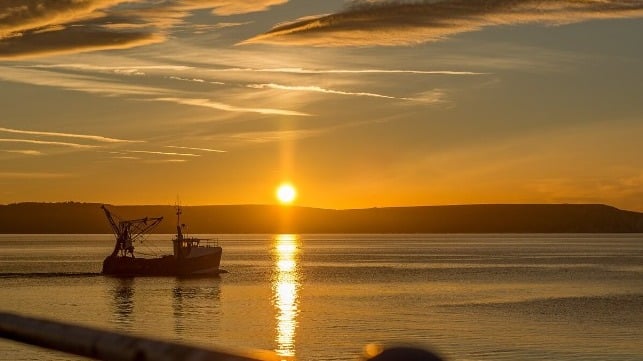NGO Sues UK Government Over International Fishing Quotas

UK’s environmental group Blue Marine Foundation has sued the British government for setting fishing quotas above sustainable levels.
The charity claims that the government has set fishing quotas for more than half of UK stocks at levels exceeding what scientists recommend. The group says that this is illegal under post-Brexit fishing law, which requires that the management of UK’s fisheries is based on the best available scientific advice. The organization estimates that the sum of annual quotas for mackerel and the resulting catches have exceeded scientific advice by an average of 44 percent since 2010.
Before filing suit, Blue Marine Foundation sent a letter to the Secretary of State for Environment and Food on January 24, but said that it did not receive adequate answers.
Every year, the UK, EU and Norway negotiate catch limits for their shared commercial fisheries in the North Sea and North Atlantic Ocean. The mackerel fisheries are the most valuable and are the largest proportion of the quota system. Other species covered by the arrangement include cod, whiting and monkfish.
Blue Marine says that in the quotas for 2023, the UK granted Norway access to its waters for a higher total allowable catch – well above past levels. In return, Norway would transfer over 24,000 tons of mackerel quota to the UK.
This quota is worth about $30 million. It was negotiated by the UK even though the stock was overfished, and was distributed for reasons that remain secret, according to Blue Marine. The usual mackerel share for Norway has been 22.5 percent in the last one decade. However, in the 2023 quota negotiation, the UK raised that share to 32 percent. This action reversed a long standing position that shares should not go beyond historic levels.
“It is not remotely clear what benefit the public is getting from over-allocating this valuable resource. It is time that the distribution of fishing opportunities is reformed to protect the marine environment and food security in ways which benefit our struggling coastal communities,” said Charles Clover, co-founder of Blue Marine.

that matters most
Get the latest maritime news delivered to your inbox daily.
Mackerel quota remains controversial because while the coastal states have agreed to the scientific limit, they have failed to agree on how to share the catch. This has seen individual countries self-declare their own figures, so the overall catch ends up exceeding the scientific limit, leading to 400,000 tons more fish being caught than was sustainable in 2023. Blue Marine says that this amounts to overfishing, and has a disproportionate impact on small fishing communities.
This case comes days after a report by Oceana UK released last week, revealed that industrial vessels suspected of using harmful fishing methods, such as bottom-trawling, spent more than 33,000 hours in UK’s marine protected areas in 2023.
